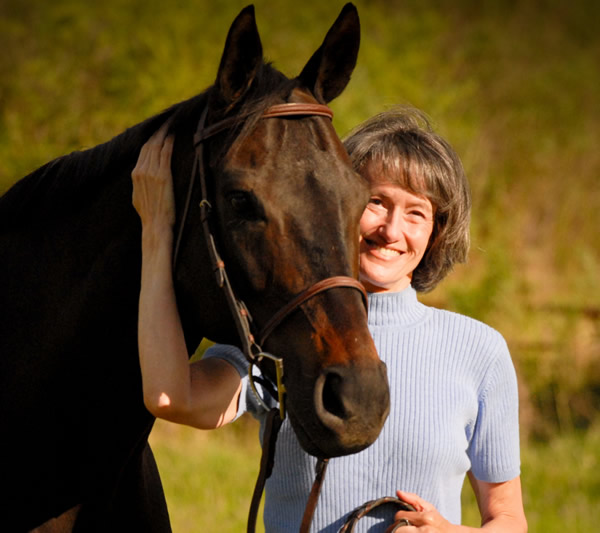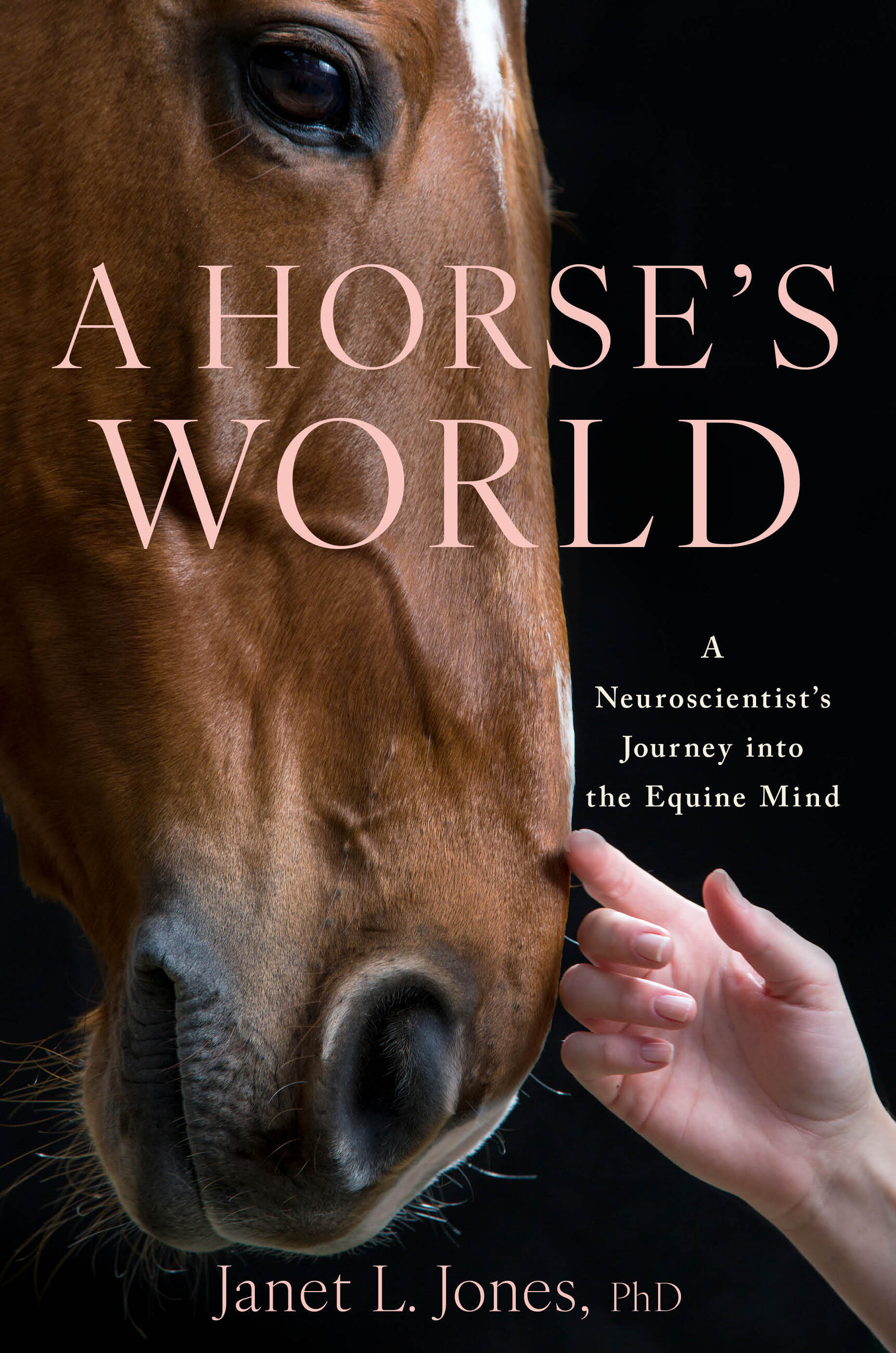TRUE TRAINING 63 - Let's Play
Horses are playful animals, and True is no exception. He loves to play with his equine buddies in pasture, galloping around, kicking and bucking, chasing them along the fence line, and dodging each other with a lot of happy bobbing and weaving. He plays with me, too.
What defines play? It has to be an action the horse undertakes without being taught or required to perform. It also needs to be an action with no inherent reward. In other words, grazing, eating, or drinking do not qualify. Splashing in the water trough does. My horses are always loose and unhaltered during playtime, so they can come and go as they please during playtime. Usually they prefer to hang pretty close and become part of the action. When they don’t feel like playing, I leave the pasture or go on about my business there while they tend to their own activities. After all, “forced play” is an oxymoron that does no one any good.
The best time to teach your horse to play with you is when she’s young. All animals tend to be more playful in their younger years, just as we humans do while children. How do you play with a horse?
Some enjoy jolly balls, with a handle on one side that horses can grab with their mouths. They will chase these balls if thrown, push them around with their noses, kick at them with their feet. Scented jolly balls seem to work best, to add equine interest. I’m told some horses throw these balls against barn walls and such, though I have not had that experience myself. True watches me throw the jolly ball but does not attempt to imitate the action. However, his jolly ball moves mysteriously from his run to an adjacent fenced area on most days. He’s not saying how that happens. It seems to me he must be throwing the ball over the fence, and the other horses aren’t throwing it back.
I haven’t met a horse who would play fetch yet, but ya never know! Some horses also enjoy pushing around a giant beach ball with their noses, legs, or chests. You can buy sturdy horse balls for this purpose.
Another horse-and-human game is follow. True will follow me anywhere, so I create random patterns of movement in a big pasture. He will walk along behind me, trot when I jog, slow to a walk when I do, and follow my stops and turns. Sometimes he goes off for some grazing for a while, which is fine.
Along with following, horses will use their natural talent for observation and imitation while playing. If I am walking the pasture searching for rocks, bending down to pick up each rock and throw it outside the fence, many of my horses do the same. Yes! They walk along near me—though not behind me as in the follow game—with their noses close to the ground. After the horse learns the game—just by watching me, not because I teach her how—she will sometimes stop at a rock. This cues me to reach down and pick the rock up. And so we go… horses are very good at finding rocks! They'll help search for lost shoes, too.
I find it curious that horses find rocks even when their noses are so close to the ground that rocks can not be seen with their eyes. Either they are smelling the rocks or feeling for them with those long muzzle whiskers. Maybe both.
Then there’s the dodge game. Here, I usually run in a large pasture with horses who are long accustomed to playing with me. My horses run too, and we end up running toward or around each other and turning sharply away before we get too close. (Anything within 30 feet is "too close." Keep a safe distance!) This game does require care and attention, and of course it should never be done with dogs, other people, or other horses in the mix. I recommend playing other games with your horse and building up to dodge over time. Then remember it is a solitary game--just your horse and you.
People have asked me whether the dodge game encourages aggression in the horse. My experience playing dodge with many horses over a lifetime of fun has been that it does not. But that’s probably because I teach my horses in specific long-term lessons to respect my human space, then practice 3 or 4 times a month to keep their groundwork sharp. One of those skills is to always stay out of the imaginary bubble that surrounds humans. I’ll explain more about that in my next post!
Meanwhile, go play!

